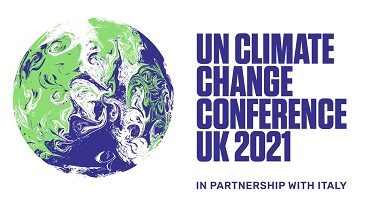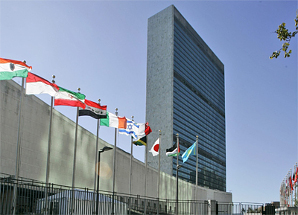Glasgow - COP26
| Objectives |
 COP26, the 26th Conference of the Parties on Climate Change, has taken place in Glasgow in November. The conference, postponed last year due to the Covid-19 pandemic, has been chaired by the United Kingdom in partnership with Italy.
COP26, the 26th Conference of the Parties on Climate Change, has taken place in Glasgow in November. The conference, postponed last year due to the Covid-19 pandemic, has been chaired by the United Kingdom in partnership with Italy.
There are four main objectives.
1. A world with zero emissions by 2050 by limiting the rise in temperatures to no more than 1.5 degrees.
To achieve these goals, participating countries are expected to:
- accelerate the phasing out of coal;
- reduce deforestation;
- accelerate the transition to electric vehicles;
- encourage investments in renewable energies.
2. Protect communities and natural habitats
The climate is changing and will continue to change with devastating effects. COP26 will debate how to allow and encourage countries affected by climate change to:
- protect and restore ecosystems;
- build protection systems, warning systems and resilient infrastructure and agriculture in order to avoid damages to infrastructure, livelihoods and human lives.
3. Mobilize finance
Developed countries must deliver on their pledge to mobilize at least $ 100 billion a year in climate finance by 2020.
International financial institutions must do their part and to make available the public and private funding needed to ensure a zero-carbon world.
4. Collaboration and cooperation
We can only tackle the challenges of the climate crisis by working together. At COP26 we must:
- approve the “Paris Rulebook”, the detailed rules that make the 2015 Paris Agreement operational;
- accelerate action to tackle the climate crisis through collaboration between governments, businesses and civil society.
The website of the United Nations Framework Convention on Climate Change
https://unfccc.int/process-and-meetings/conferences/glasgow-climate-change-conference
The official website COP26
https://ukcop26.org
| How the COP26 works |

COP is organized in plenary and non-plenary sessions. There are also many thematic events promoted by the participating states, by civil society and other international actors.
In a letter sent to all parties on 15 July 2021, Alok Sharma, the COP President Designated by the British government, summarized the expectations and open issues at the center of discussions and negotiations.
Provisional agenda:
https://unfccc.int/sites/default/files/resource/cp2021_01_adv.pdf
Letter by the COP President Designate:
https://unfccc.int/sites/default/files/resource/COP26%20%20President%20Designate%20Open%20letter.pdf
The COP26 official website:
https://ukcop26.org/
| The preparation process |
Each COP is preceded by a long and complex preparation process. A ministerial preparatory meeting was held on 25-26 July 2021 and was attended by more than 50 high-level ministers and representatives, including the UN Deputy Secretary-General and the UNFCCC Executive Secretary. Expectations towards COP26 and open negotiation issues were discussed. The last preparation meeting, PreCop, will be held in Milan at the end of September.
Other information:
https://ukcop26.org/july-ministerial-chairs-summary/
https://www.mite.gov.it/pagina/milan-pre-cop
The sixth IPCC report
Last August the report "Climate change 2021: the Physical Science Basis" was published by the United Nations Intergovernmental Panel on Climate Change, Ipcc. The report provides: "the latest knowledge gained on past global warming and future projections, showing how and why the climate has changed to date and including a better understanding of human influence on climate, including extreme events”.
The report:
https://www.ipcc.ch/report/ar6/wg1
| Participating Member States and Nationally Determined Contributions (NDCs) |
NDCs play an important role in the implementation of the Paris Agreement and its long-term goals. The NDCs illustrate the progress of each country's efforts to reduce national emissions and adapt to the impacts of climate change.
NDCs are submitted every five years to the UNFCCC Secretariat. The Paris Agreement provides that future NDCs represent a progression from previous ones.
More information:
https://unfccc.int/process-and-meetings/the-paris-agreement/nationally-determined-contributions-ndcs/nationally-determined-contributions-ndcs
https://www4.unfccc.int/sites/NDCStaging/Pages/All.aspx
| The Parigs Agreement and following COPs |

In 2015 over 190 countries signed the Paris Agreement whose aim is to contain the rise in the earth's temperature below 2 ° C, ideally to 1.5 ° C, compared to 1900 level.
See also:
https://www.mite.gov.it/pagina/cop-21-laccordo-di-parigi (IT)
https://www.mite.gov.it/pagina/le-conferenze-delle-parti-della-convenzione-sui-cambiamenti-climatici-cop (IT)
